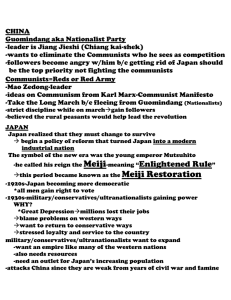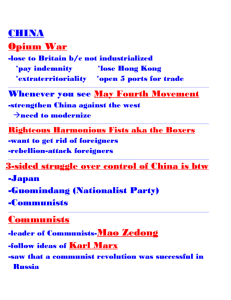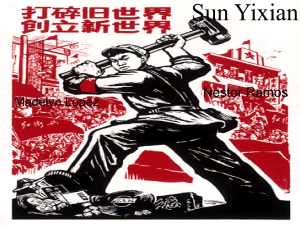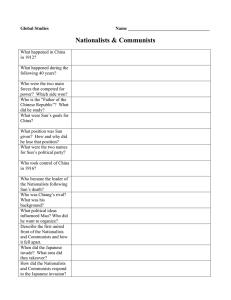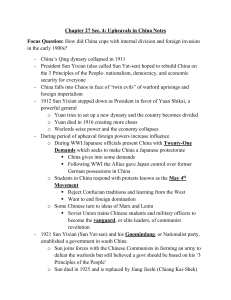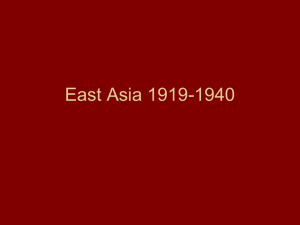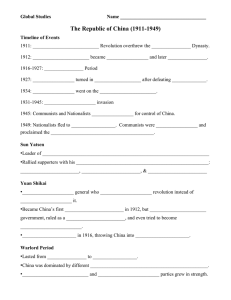25-5 Review Sheet Answers 1.
advertisement
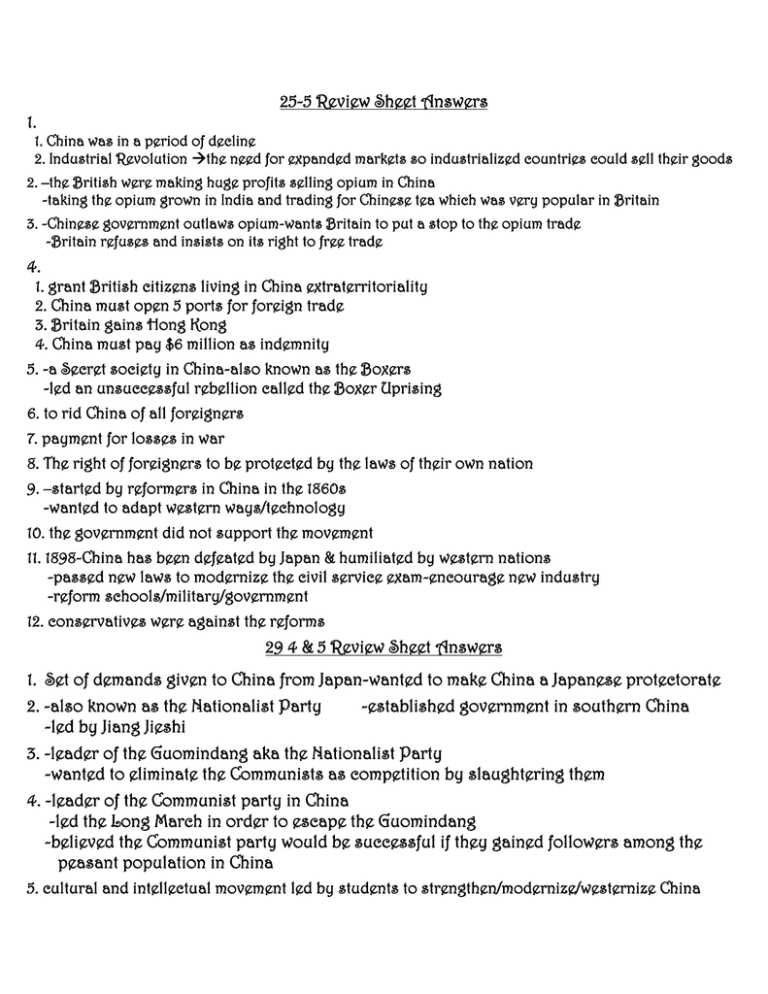
1. 25-5 Review Sheet Answers 1. China was in a period of decline 2. Industrial Revolution the need for expanded markets so industrialized countries could sell their goods 2. –the British were making huge profits selling opium in China -taking the opium grown in India and trading for Chinese tea which was very popular in Britain 3. -Chinese government outlaws opium-wants Britain to put a stop to the opium trade -Britain refuses and insists on its right to free trade 4. 1. grant British citizens living in China extraterritoriality 2. China must open 5 ports for foreign trade 3. Britain gains Hong Kong 4. China must pay $6 million as indemnity 5. -a Secret society in China-also known as the Boxers -led an unsuccessful rebellion called the Boxer Uprising 6. to rid China of all foreigners 7. payment for losses in war 8. The right of foreigners to be protected by the laws of their own nation 9. –started by reformers in China in the 1860s -wanted to adapt western ways/technology 10. the government did not support the movement 11. 1898-China has been defeated by Japan & humiliated by western nations -passed new laws to modernize the civil service exam-encourage new industry -reform schools/military/government 12. conservatives were against the reforms 29 4 & 5 Review Sheet Answers 1. Set of demands given to China from Japan-wanted to make China a Japanese protectorate 2. -also known as the Nationalist Party -led by Jiang Jieshi -established government in southern China 3. -leader of the Guomindang aka the Nationalist Party -wanted to eliminate the Communists as competition by slaughtering them 4. -leader of the Communist party in China -led the Long March in order to escape the Guomindang -believed the Communist party would be successful if they gained followers among the peasant population in China 5. cultural and intellectual movement led by students to strengthen/modernize/westernize China 6. -led by Mao Zedong -epic retreat by the communists who are fleeing the Guomindang aka the Nationalists -heading to northern China 7. also known as the Guomindang led by Jiang Jieshi 8. -was president of the Chinese republic until he steps down in favor of a general taking power -wanted to rebuild China on the Three Principles of the People 9. after the people of Nanjing surrendered to Japan the Japanese killed and brutalized hundreds of thousands of Chinese soldiers and civilians 10. Japanese parliament/legislature 11. extreme nationalist 12. strong political parties-parliament increasing its power-all adult men had the right to vote 13. emperor of Japan-during his reign Japan experienced remarkable success and appalling tragedy 14. puppet state set up by Japan in China 15. trade declined -unemployment increased-peasants close to starvation 16.-the military and extreme nationalists are angered and begin to increase their power -want to build a Japanese empire which would provide greatly needed raw materials and an outlet for Japan’s increasing population 17. The three-sided struggle is between the Communists, the Guomindang ( Nationalist Party), & Japan 18. -strict discipline was enforced so the communists would be welcomed by the peasants who had been suffering under the leadership of the Guomindang (Nationalists) help the Communists gain followers 19. -the Chinese people would be forced to unite & work together towards a common goal of driving the foreigners out of their country
